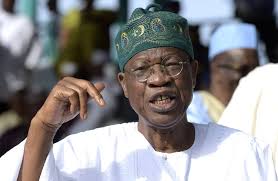Business
Nigerian Government concerned about high ratio of debt servicing

The Federal Government says Nigeria’s debt servicing to revenue ratio has been higher than desirable.
The Minister of Information and Culture, Lai Mohammed, said this while addressing journalists in Lagos yesterday on the progress made by the present administration in the outgoing year 2019.
He, however, said the government was aggressively diversifying the economy and increasing oil and non-oil revenues significantly in addition to widening the tax base to capture more tax-paying citizens. The minister put the country’s current debt profile at $83.8 billion and dismissed reports that the country’s external debt was $81bn.
Former President Olusegun Obasanjo had weekend cautioned against plunging the nation into bankruptcy amidst the rising debt profile. But the minister said there was no cause for alarm with the debt profile.
According to him, the entire debt profile comprises $27.163bn external and $56.720bn domestic debt. He said the debt figure represented the cumulative borrowings by successive governments. He said the total public debt stock in 2015 was $63.80billion, comprising $10.31 billion of external debt and $53.49 billion domestic debt.
“By June 2019, the total debt stock was $83.883 billion, made up of $27.163 billion of external debt and $56.720 billion domestic debt,” he added. Mohammed said Nigeria had a debt ceiling of 25 percent in the total public debt stock to Gross Domestic Product (Debt/GDP), which it had operated within. “The ratio for Dec. 31 2018 and June 30 2019 were 19.09% and 18.99% respectively.”
He said while the inflow of foreign direct investment declined over the period by 39% from $1 billion to 700 million US dollars, portfolio investment and other investments both rose significantly by 39% and 42% respectively. He noted that “in the face of massive infrastructural decay”, the borrowing was aimed at revamping the infrastructure, including roads, bridges, railways, waterways and power which would unleash the potential of the nation’s economy. “The loans for the educational sector will contribute to the development of our human capital while the loans for the agricultural sector will help the move to diversify the economy,” he said.
He said the economy continued to witness a strong performance, building on the steady recovery seen since the last recession growing at an average rate of 2.2% over the first three quarters, compared to 1.7% over the same period in 2018.







Deri
2019/12/31 at 6:21 pm
Even thieves pray to God before embarking on their evil acts…so why should any sane Nigerian be shocked at the huge debt incurred by the current Lucifer’s in Aso rock…..